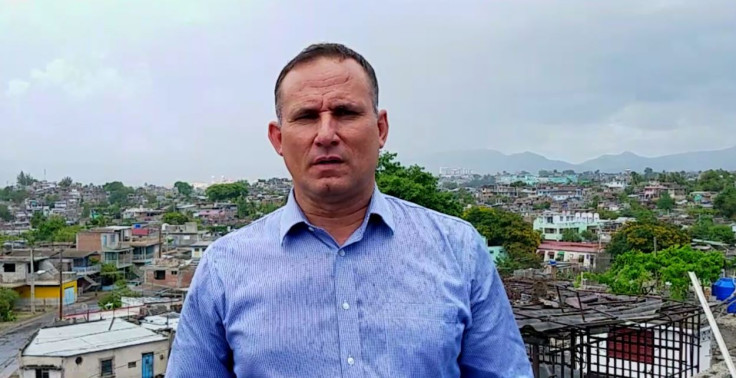
MIAMI - José Daniel Ferrer, one of Cuba's most prominent opposition leaders, has been released from prison and exiled to the United States after months of detention and international concern over his safety. The announcement, made by his brother in Miami, was confirmed by the Cuban Foreign Ministry, which stated that the release occurred at the request of the U.S. government and was accepted by Ferrer and his family.
Ferrer, 54, is the founder of UNPACU, the Patriotic Union of Cuba, and has been one of the most outspoken critics of the Cuban regime for more than a decade. According to The Miami Herald, he has endured repeated arrests, intimidation campaigns, and harsh prison conditions over the years. His most recent imprisonment began earlier this year, after the government revoked his conditional release without public explanation. He was taken into custody again in April, and for months, no images or updates were released, sparking fears among human rights groups that he was being held incommunicado.
In early October, Ferrer released a handwritten letter from prison describing his conditions as inhumane and accusing Cuban authorities of physical abuse, sleep deprivation, and psychological torture. He said he had been kept in a punishment cell, denied medical care, and subjected to ongoing threats. In the letter, he expressed fear that his wife would be imprisoned next and that their son could be institutionalized. He explained that exile had become the only option left to protect his family.
"After 178 days of blows, torture, humiliation, threats and extreme conditions, I had to accept the exile," Ferrer wrote. "Not because I fear prison or death, but because I fear for my family. They were next."
The exile deal comes amid increased pressure from the U.S. government and international human rights organizations demanding proof that Ferrer was still alive and calling for his immediate release. U.S. Secretary of State Marco Rubio, recently appointed by President Trump in his second term, had made Ferrer's case a focal point in his new Latin America policy. Rubio, a longtime critic of the Cuban government, had accused Havana of using Ferrer as a political hostage and demanded transparency regarding his condition.
Ferrer landed in Miami with his wife, Dr. Nelva Ortega, and their son. Supporters welcomed them at the airport with Cuban flags and chants of "libertad." His arrival was emotional, but not without controversy. Critics argue that exile is a strategy used by the Cuban government to defuse internal dissent while claiming cooperation abroad.
This release was not an isolated gesture. In January, the Cuban government announced the conditional release of over 500 prisoners following discussions with the Vatican. Ferrer was among those listed, but his freedom was short-lived. The government later accused him of violating the terms of his release and re-arrested him without trial. Since then, little information about his whereabouts had surfaced until the letter leaked to international press earlier this month.
Human rights groups including Amnesty International and the Cuban Observatory for Human Rights have issued statements celebrating Ferrer's release but warning that it does not absolve the Cuban government from responsibility. They are calling for the release of all political prisoners and an end to retaliatory exile practices.
Ferrer's organization, UNPACU, remains active in eastern Cuba. It is unclear how he will continue to lead the movement from abroad, but his allies say he intends to reorganize and expand international efforts to support Cuban dissidents.
© 2025 Latin Times. All rights reserved. Do not reproduce without permission.






